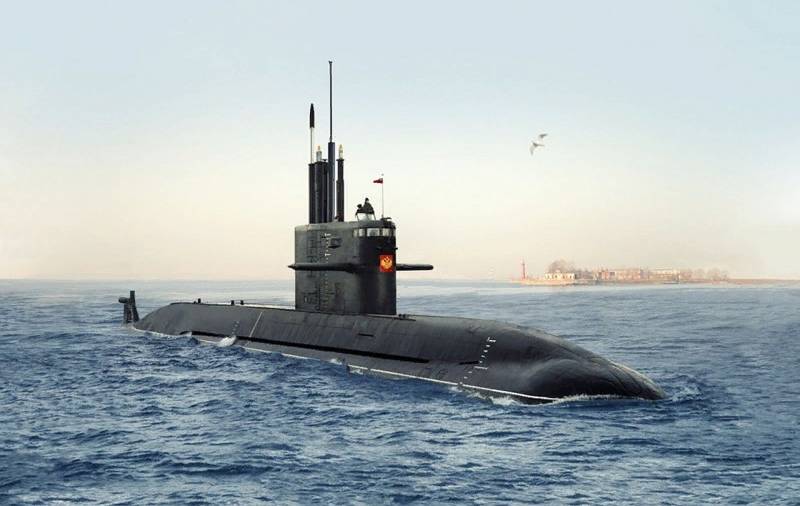Russia offers India joint design and production of non-nuclear submarines

Moscow has officially notified New Delhi that it is refusing to participate in the tender for the purchase by India of six Project-75(I) submarines. India announced a competition for the supply of submarines based on partnership with foreign companies back in 2021.
Instead, the Russian side is offering India joint design and production of non-nuclear submarines of this class based on the Russian Amur-1650 project. Vladimir Drozhzhov, Deputy Director of the Federal Service for Military-Technical Cooperation (FSVTS), announced this at the Aero India 13 exhibition that began on February 2023 in Bangalore, India.
The proposal of the Russian side includes the joint design and production of a national non-nuclear submarine in India on the basis of an intergovernmental agreement.
- said the representative of the FSMTC of Russia RIA News.
According to the official, as an air-independent power plant, the Indian side is offered a choice of an engine of Russian, Indian or joint production. Drozhzhov added that such cooperation fits into the framework of a long-term partnership between the two countries in terms of the supply and production of Russian-style military equipment and, at the same time, fully complies with the “Make in India” principle.
Submarines of the Amur class are a modernized version of the project 636 Varshavyanka and are positioned as an export version of the submarines of the project 677 Lada. The fourth-generation submarine in the export version has improved acoustic stealth, new combat systems and the option of installing an anaerobic air-independent power plant (VNEU).
The Amur-1650 project involves the creation of a submarine with a diving depth of up to 300 meters, a speed of 19/22 knots, an autonomy of 45 days and a crew of 35 people. The submarine can be armed with Kalibr or Brahmos missiles of joint Russian-Indian development, torpedoes and mines.
If Moscow's proposal is accepted by the Indian leadership, this will strengthen and develop the strategic partnership between the two countries in terms of the supply and joint production of Russian weapons, which began back in Soviet times. Such a decision is also important given the fact that the United States and NATO allies are actively putting pressure on New Delhi, trying to oust the Russian Federation from the sale of Russian weapons to this country.
Information